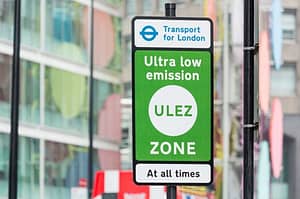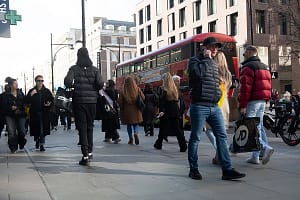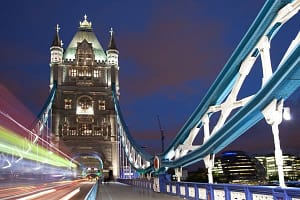Colin Stanbridge, CEO of the London Chamber of Commerce and Industry, says the air travel tax is hurting the UK economy
With the Jubilee weekend a few days away and the Olympics fast approaching, London has the most incredible chance to become the destination of choice for the world. We’ll get a huge amount of publicity from the Games, with thousands of journalists saying what a great place London is.
We need to make sure there are as few barriers in the way of the resultant tourism and business opportunities as possible. But Air Passenger Duty (APD), the excise duty charged to international passengers going through UK airports, is acting as a huge deterrent to some long-haul passengers – and we’re really concerned about it, particularly at this time.
We want as many people to come to London as possible. A lot of those people are going to come by air, whether people like it or not. That’s the way you have to come if you’re coming from India, China, South America – the kind of people we want to attract to London.
When APD was introduced, it was simple and cheap: all passengers leaving the UK had to pay £5. People accepted that. Now, the cost is going up – in some cases by a lot. A family of four travelling from Australia or New Zealand has to pay between £368 and £736 in APD to visit the UK.
That has a real effect. We’re told that bookings from Australia and New Zealand are both down a quarter. There could well be other factors involved, but it’s hard to think that those other factors alone are going to suddenly cause a drop as big as 25 per cent.
A family of four travelling from Australia or New Zealand has to pay between £368 and £736 in APD to visit the UK
Meanwhile, nearby European cities, such as Brussels, Paris, Amsterdam and so on, are getting more bookings around the Olympic period. That’s because you can go in and out of Brussels, say, and take the train or the ferry to London to avoid paying APD.
It’s yet another example of not having a level playing field for London. And it is to the detriment of the hospitality and leisure industries, which are so vital to the London economy.
We did a seminar with PwC last month on the prospects for the hospitality and leisure sectors in London this year and going forward. Hotels have done relatively well in the last few years, and the prediction from PwC was that this year again would be a good year, driven by the Olympics.
But the feeling was that next year we could see a real dip in visitor numbers. Obviously we still hope that the Olympics will create a knock-on boost to leisure and business tourism to London over the next few years. But if PwC is right – and, let’s be honest, they know what they’re doing – then anything that impedes tourism here further, like APD, is going to be bad for the economy.
The government may well be taking money in through APD, but overall there’s a good chance the UK will be losing out because of it. That’s because we’ll see less tourism here, and so a lot less money spent by tourists. If all the London restaurants and hotels and shops see a drop in revenue, then less money rolls into the Exchequer.
Plus, because there are ways of getting round APD or paying less by taking different routes through Europe, then it could be that even the revenue HMRC had hoped to make from APD won’t come in at the expected levels.
So the Treasury loses out in both ways. That’s why we’ve been calling on government for some time to get rid of APD. I’d urge you to do the same.
Colin Stanbridge is the chief executive of the London Chamber of Commerce and Industry
You might also like…
Why you should consider doing business in China – and how to manage it
Michael O’Leary slams government’s quarantine plans
Our free newsletter





Leave a Comment